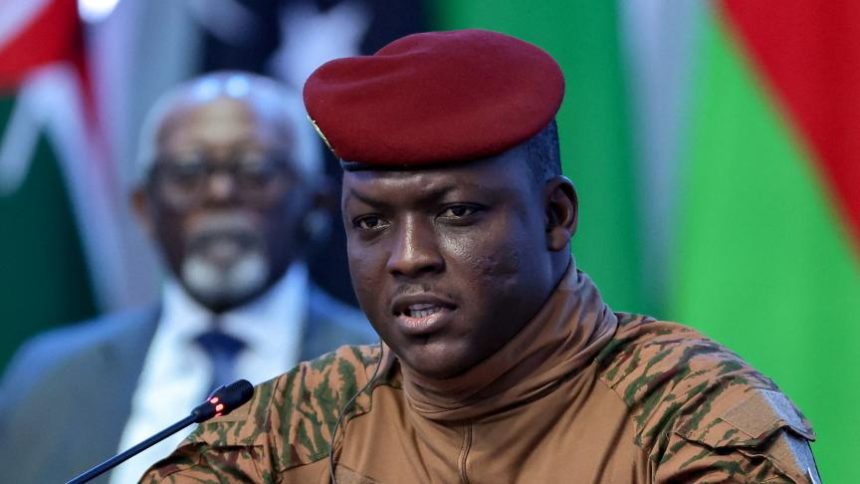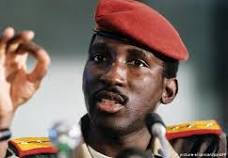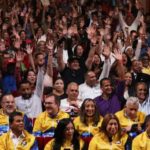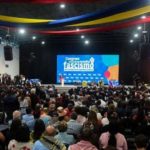This deeply anti-imperialist speech shows that the thought of Thomas Sankara is still very much alive in the Land of the Upright Men[1], in a process where the African continent is already asserting its independence and tending to build new Revolutionary States.
Ibrahim Traoré says: “Africa’s time of enslavement by Western regimes is over, and the battle for full independence has begun”.
Here goes his speech:
Comrade President Vladimir PUTIN,
Comrades Presidents and African Heads of State,
Comrades Heads of Delegation,
Good morning.
It is an honour for me this morning to speak here and to pass on to you the fraternal greetings of the people of the country of ‘upright men’.
This is also the place for me, first and foremost, to give thanks to God, Almighty God who has enabled us to meet here this morning, in good health, to talk about the future and the well-being of our peoples.
I would like to apologize to any elders who may be offended by my forthcoming comments. Africanity obliges the right of birth. I must apologize.
Comrades,
I have a few questions from my generation. A thousand and one questions. But we have no response.
And it so happens that here, we can air our dirty laundry because we feel like family, we feel like family in the sense that Russia is a family for Africa too. We are a family because we have the same history. Russia made enormous sacrifices to free the world from Nazism during the Second World War. The African people, our grandfathers, were also forcibly deported to help Europe get rid of Nazism.
We share the same history in the sense that we are the forgotten peoples of the world, whether in history books, documentaries or films. We tend to dismiss the key role played by Russia and Africa in the fight against Nazism.
We are here together because we are here to talk about the future of our peoples, about what is going to happen tomorrow, about this liberated world to which we aspire, this world without interference in our internal affairs.
We have the same perspectives and I hope that this summit will be an opportunity to forge very good relations with the aim of a better future for our peoples.
The questions my generation is asking are the following. If I can summarize, it is that we do not understand how Africa, with so much wealth on our soil, with generous nature, water, sunshine in abundance—how Africa is today the poorest continent. Africa is a hungry continent. And how come there are heads of state all over the world begging? These are the questions we are asking ourselves, and we have no answers so far.
We have the opportunity to forge new relationships, and I hope that these relationships can be the best ones to give our peoples a better future. My generation also asks me to say that because of this poverty, they are forced to cross the ocean to try to reach Europe. They die in the ocean, but soon they will no longer have to cross, because they will come to our palaces to seek their daily bread.
As far as what concerns Burkina Faso today, for more than eight years we’ve been confronted with the most barbaric, the most violent form of imperialist neo-colonialism. Slavery continues to impose itself on us. Our predecessors taught us one thing: a slave who cannot assume his own revolt does not deserve to be pitied. We do not feel sorry for ourselves, we do not ask anyone to feel sorry for us. The people of Burkina Faso have decided to fight, to fight against terrorism, in order to relaunch their development.
In this struggle, valiant people from 20 populations have pledged to take up arms in the face of terrorism. This we affectionately call the VDP of volunteers [2]. We are surprised to see the imperialists calling these VDPs militias and all kinds of things. It is disappointing because, in Europe, when people take up arms to defend their homeland, they are called patriots. Our grandfathers were deported to save Europe. It was not with their consent, [it was] against their will. Well, on returning, we remember well that at Thiaroye, when they wanted to claim their basic rights, they were massacred [3].
It doesn’t matter, then, that when we, the people, decide to defend ourselves, we’re called a militia. But that’s not the problem. What is the problem are African heads of state who contribute nothing to these people who are fighting, but who sing the same song as the imperialists, calling us militias, calling us men who don’t respect human rights. Which human rights are we talking about? We take offense at this, it is shameful. We African heads of state must stop behaving like puppets who dance every time the imperialists pull the strings.
Yesterday, President Vladimir Putin announced that he would be sending grain to Africa. We are very pleased. We thank him for that. But it’s also a message to our African heads of state. Because at the next forum, we cannot come here without ensuring, for those who are not familiar with war, that our people are self-sufficient in food. We need to take the experience of those who have already achieved this in Africa, build good relations here and build better relations with the Russian Federation so that we can meet the needs of our people.
I won’t be long. Time is very short. We have to stop at a certain point. But I would like to finish by saying that we must therefore pay tribute to our peoples, to our peoples who are fighting.
Glory to our peoples
Dignity to our peoples
Victory to our peoples
Fatherland or death, we will win!
Thanks comrades, Captain Ibrahim Traoré, President of the Transition in Burkina Faso
Feature photo above: Captain Ibrahim Traoré of Burkina Faso at the Russia-Africa Summit
This speech was translated from French by Layan Sima Fuleihan.
[1] Burkina Faso was named Upper Volta by the imperialists. The word ‘Burkina’ means “men of integrity” in the Móoré language. ‘Faso’ means “land of” in the Dyula language. There are 70 languages spoken in Burkina Faso. French is the official one, but not the most spoken. The Móoré language is one of 4 other official languages. Móoré is language for around 8 million Mossi people in Burkina Faso, Ghana, Ivory Coast, Benin, Niger, Mali, Togo and Senegal. The writing system is Latin-based with a Móoré alphabet. Dyula is a Niger-Congo language used also in Ivory Coast, Burkina Faso and Mali, spoken by around 1.5 million persons. On 2 August 1998, the president Thomas Sankara of Upper Volta had proposed to rename his country Burkina Faso. As the National Assembly accepted this 2 days later, it expressed the revolutionary aspiration of the population to unite between ethnic groups and build relations of human dignity for all. Even should it wish to, world imperialism will never reverse this name-change. The way to the land of the upright people is therefore through the negation of its imperialist negation. The material base for it, is the construction of Revolutionary States and Workers States in the region and in Africa, in solidarity and unification with all those already progressing in the rest of the world.
[2] The VDPs are Volontaires pour la Défense de la Patrie. They are armed self-defence groups created to fight the Jihadist groups of Islamic State and al-Qaeda which spread from Libya in 2015, to reach Niger, Mali and Burkina Faso. Over the last 8 years, this Ansarul Islam uses violent methods in a spirit of conquest. In Burkina Faso, around 64% of the population is Sunni Islamist.
[3] Thiaroye is a historic town in Senegal, suburb of Dakar. In November 1944, the ‘Allies’ were beginning to defeat Germany from the Normandy landing. Encouraged to defy German orders, the French army decided to send back to Thiaroye some of the French-Senegalese prisoners of war who had been incarcerated on French soil by the German army of occupation.The repatriation was organised in a contemptuous manner for the Black soldiers: withholding their payments, keeping them in prisoner’s clothes, ignoring their needs and still keeping them in a French camp in Thiaroye – instead of releasing them. When they arrived at Thiaroye, the Senegalese soldiers demanded their pay and their rights. The French army led by Brigadier Marcel Dagnan entered the camp and eventually opened fire. Out of 2000 soldiers, between 70 and 400 were killed outright. Later, the French state indicted, tried and jailed some survivors for insubordination. Some Senegalese soldiers were eventually exonerated, but never pardoned. This episode does not figure in the history school-books in France. A film about it was banned in France in 2013. The cemetery in Thiaroye in unkept and unvisited. The tombs are unmarked and the government of Senegal, to this day, prevents films and photos from being taken there.
On 12.2.2023, the paper Le Monde reported that the Senegalese youth “demand the restoration of the memory of their ‘tirailleur’ soldiers”.

















